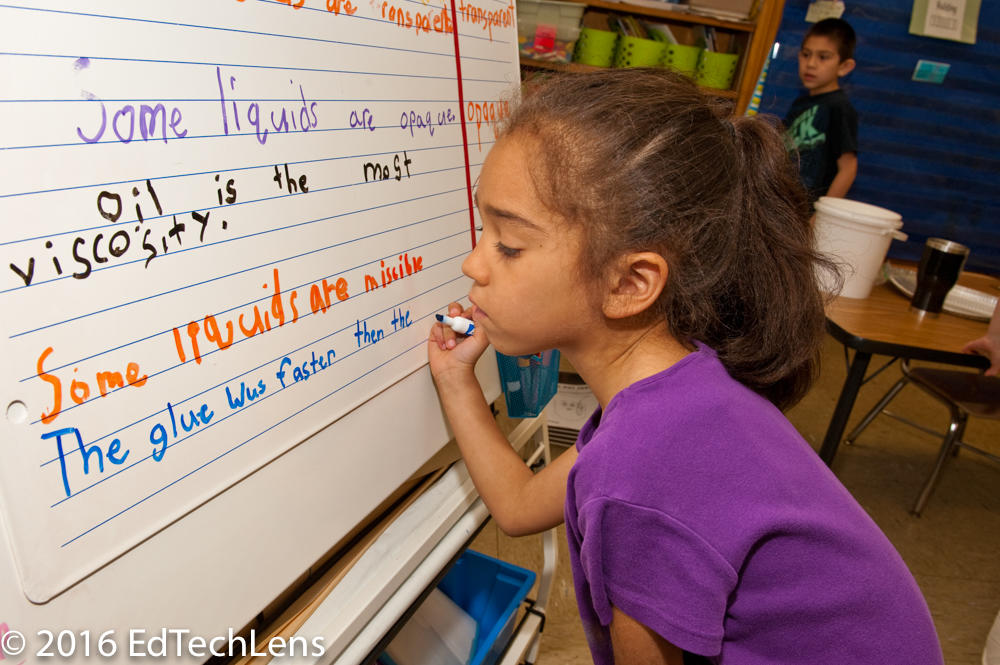
The rote memorization approach to learning vocabulary is giving way to new methods. Instead of teaching words in isolation, which actually reduces the chances the vocabulary will be retained, teachers can use technology and collaborative group work to help students truly learn and apply new language. Try these techniques to better support students’ learning of scientific vocabulary:
- Imagery: visual reinforcement can include use of photographs, videos, acrostics, word drawings or demonstrations.
- Repetition: using scientific terms and phrases repeatedly and consistently throughout a lesson improves development of students’ scientific vocabulary.
- Read aloud: reading science storybooks (for younger students) will pique their interest and familiarize students with new words.
- Instructional conversations: Allow students to express concepts they’re learning about in their own words and then provide examples of how to express the same idea in scientific language. For example, after an experiment, ask students to explain what happened and then provide a teacher version and a scientist version. LearnNC.org provides this illustration:Student: “We put this smooth powder in the bag along with the crunchy powder and the bag blew up and got hot.”
Teacher: “We mixed baking soda and calcium chloride with water resulting in a gas, and heat was released.”
Scientist: “The combination of baking soda and calcium chloride is an exothermic reaction with the products of sodium chloride, calcium carbonate, and carbon dioxide.”
- Themes: learning new ideas as part of a theme enables students to follow patterns and understand the meaning of scientific terms.
- Use Whole Brain Teaching: Have students get up and use their own gestures to show what they know with their bodies as they describe what the vocab word means and how it’s used in context with the lesson or text. See the video entitled Whole Brain Teaching - 3rd Grade, Science for an example.
As students try these methods, have them chronicle what they’re learning by creating their own science vocabulary folders. Keeping a record of all the important terminology they learn throughout the year, they’re also creating their own dictionary of scientific terms.

